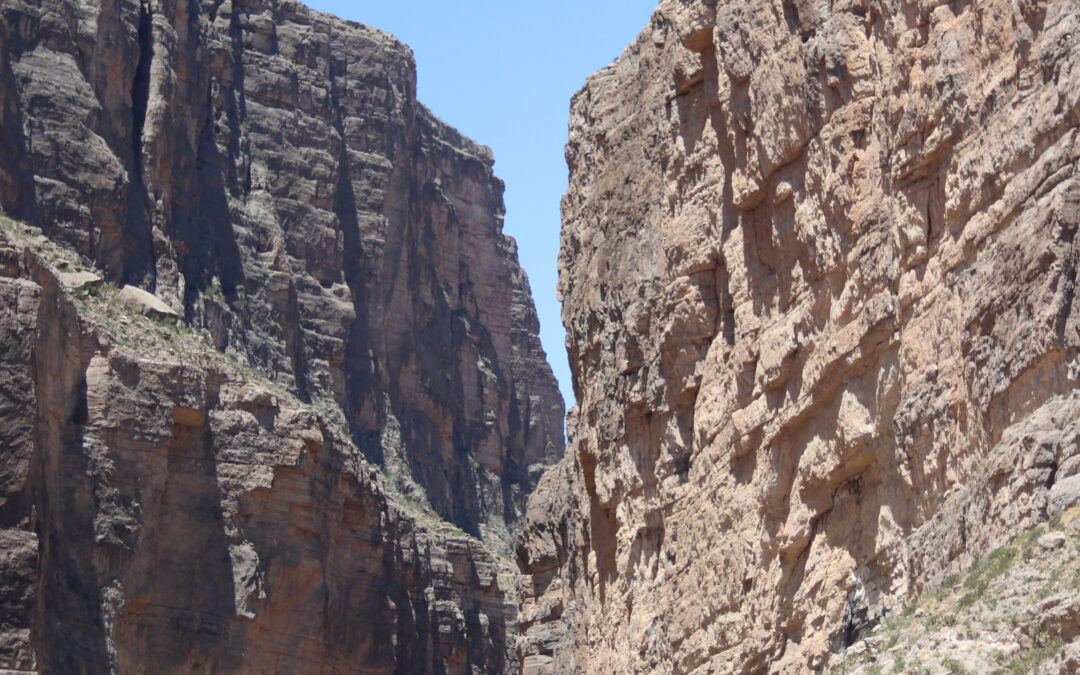Near Terlingua, TX, cradling the Rio Grande, is a deep, narrow, rock-faced canyon, Santa Elena. Our kids suggested we visit it while we were celebrating our 36th anniversary with stays in the Texas desert and hill country. High waters from recent rains kept us from hiking up onto the wall of the gorge itself, in turn preventing us from experiencing directly what is on many accounts the best feature of the magnificent stone walls: the echo.
As we work, play, and speak out our days, we feel like we are the canyon, directing the course of our lives and others’. I mentioned my marriage of 36 years. Stone-carved longevity, right? Then our friends taunt us with their impending 60th anniversary. It’s like the 101 year old man I heard recently speaking of his 85 year old friend’s youth. But, of course, once their extended term is defined, even the few centenarians among us are not a testimony to our permanence, but to our transience. Don’t get me wrong. In some ways I suppose we are like the canyon itself. By our care and involvement in others’ lives, we can become the geological structure through which they interpret and experience the world. But in most ways, we are not. We are, in contrast to the canyon itself, the echo.
In James’ own echo of Job’s and Solomon’s observations, our life is a mist, appearing for a little time, and then vanishing away. Our grandparents’ lives, and their parents’ and grandparents’ before them, all echo clearly back from history’s ravine. Yet, even as only a mist in creation, God points us out as its best feature.
This week, may the din we create be a love, joy, peace, longsuffering, gentleness, goodness, faith, meekness, and temperance which God can carry wherever He will.

